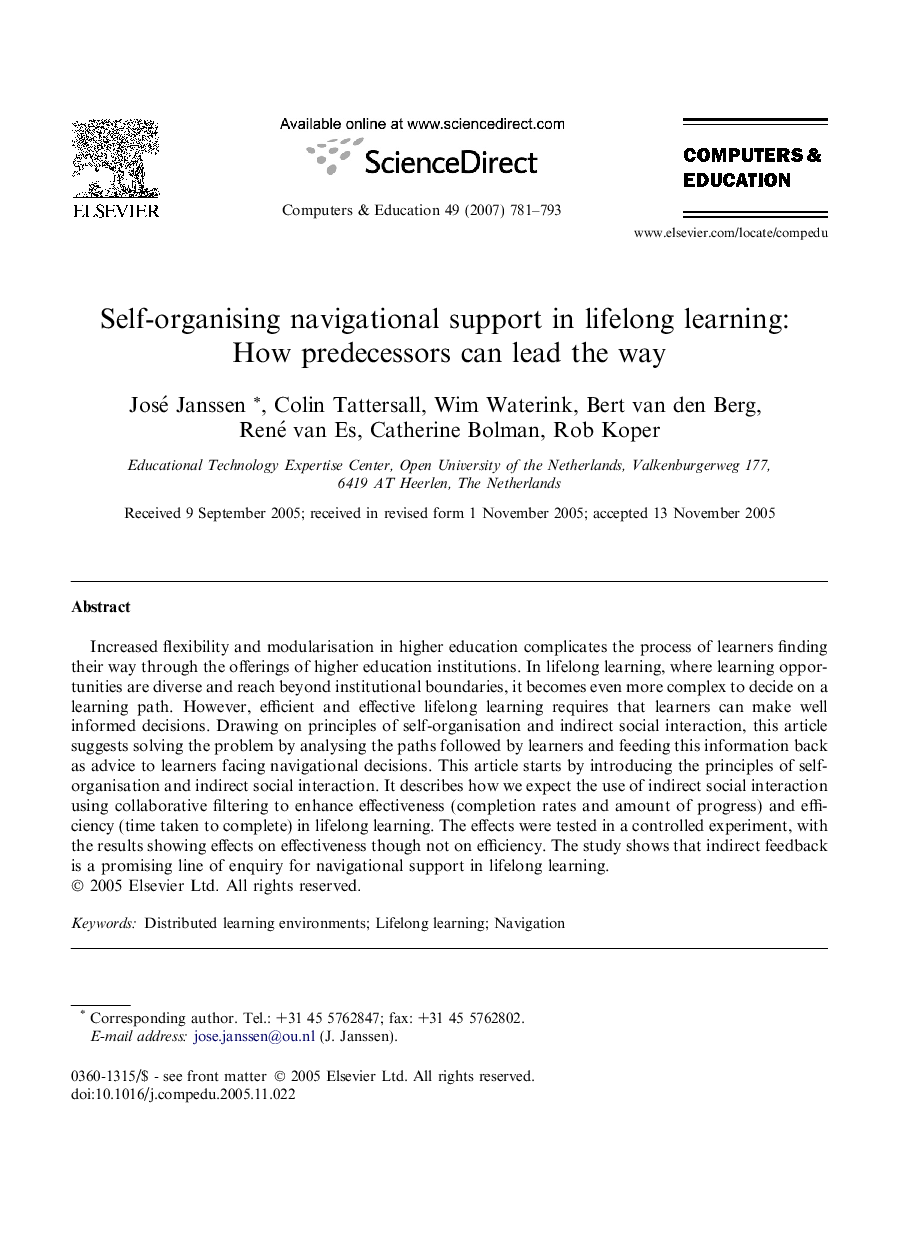| Article ID | Journal | Published Year | Pages | File Type |
|---|---|---|---|---|
| 349962 | Computers & Education | 2007 | 13 Pages |
Increased flexibility and modularisation in higher education complicates the process of learners finding their way through the offerings of higher education institutions. In lifelong learning, where learning opportunities are diverse and reach beyond institutional boundaries, it becomes even more complex to decide on a learning path. However, efficient and effective lifelong learning requires that learners can make well informed decisions. Drawing on principles of self-organisation and indirect social interaction, this article suggests solving the problem by analysing the paths followed by learners and feeding this information back as advice to learners facing navigational decisions. This article starts by introducing the principles of self-organisation and indirect social interaction. It describes how we expect the use of indirect social interaction using collaborative filtering to enhance effectiveness (completion rates and amount of progress) and efficiency (time taken to complete) in lifelong learning. The effects were tested in a controlled experiment, with the results showing effects on effectiveness though not on efficiency. The study shows that indirect feedback is a promising line of enquiry for navigational support in lifelong learning.
